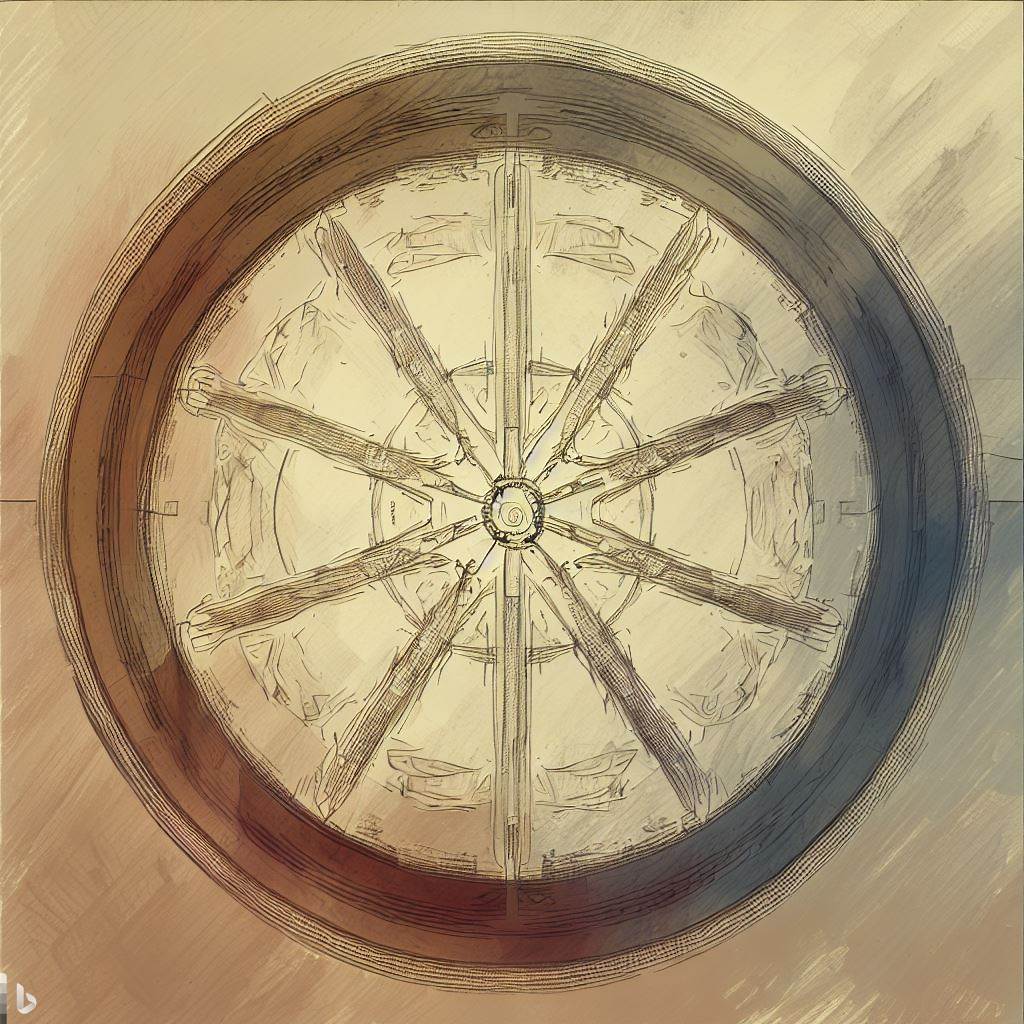The Wheel, One of the Most Important Inventions in Human History
Throughout the history of humanity, numerous inventions have shaped and influenced the course of civilization. Among these inventions, the wheel stands out as one of the most significant and revolutionary. The wheel has played an essential role in transportation, technology, and the development of societies. This essay will explore the history of the wheel, its impact on human progress, and the reasons why it is widely regarded as one of the most important inventions in human history.

The Origins of the Wheel
The exact origins of the wheel remain a topic of debate among historians and archaeologists. However, it is widely believed that the wheel was first invented in ancient Mesopotamia, around 3500 BCE. Initially, the wheel was used for pottery making, with potters utilizing a rotating wheel to shape clay vessels. Over time, the concept of the wheel was adapted for transportation purposes, leading to the creation of the wheeled vehicle.
Revolutionizing Transportation
The invention of the wheel revolutionized transportation and had a profound impact on the development of human societies. Prior to the wheel, humans relied on manual labor and animal power to transport goods and people. The wheel allowed for the creation of carts, chariots, and later, wheeled vehicles, enabling the efficient movement of heavy loads over long distances. This advancement in transportation facilitated trade, communication, and the spread of ideas, contributing to the growth of civilizations and the establishment of trade networks.
Technological Advancements
The wheel also played a crucial role in the advancement of technology. Its application in machinery and mechanical devices led to significant progress in various fields. For instance, the invention of the waterwheel and windmill harnessed the power of the wheel to grind grain, pump water, and power other industrial processes. These technological advancements greatly increased productivity and efficiency, leading to the development of complex societies and the rise of industrialization.
Cultural Significance
Beyond its practical applications, the wheel holds great cultural significance in human history. It has become a symbol of progress, innovation, and human ingenuity. The wheel is often associated with concepts such as movement, change, and evolution. Its circular shape represents continuity and the cyclical nature of life. The wheel has been depicted in art, literature, and religious symbolism across various cultures, emphasizing its deep-rooted importance in human consciousness.
Legacy and Continued Importance
Even in modern times, the wheel remains a fundamental element of our daily lives. From automobiles to bicycles, machinery to luggage, the wheel is an indispensable component of countless inventions and technologies. Its continued use and relevance highlight the enduring impact of this ancient invention on contemporary society.
Conclusion
In conclusion, the wheel is undoubtedly one of the most important inventions in human history. Its origins in ancient Mesopotamia and subsequent development revolutionized transportation, facilitated technological advancements, and left an indelible mark on human culture. The wheel’s impact on trade, communication, and the spread of ideas cannot be overstated. Furthermore, its continued use and relevance in modern times attest to its enduring importance. As we reflect on the history of the wheel, we must acknowledge and appreciate its profound influence on the course of human civilization.
Anabasis Project Team.

